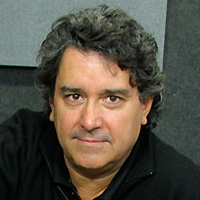Humans are driven by emotions. Banks long ago discovered that making decisions based on emotions gets them in trouble. When folks go to a bank to apply for a loan, they never meet the people who actually signs off on the approval (or not).
Instead, they meet with an associate that takes all of the necessary personal information and this is submitted to the powers that sit behind closed doors. Because the decision makers never meet customers, they can’t be swayed by personal factors such as charm, physical appearance, and so on. Decisions are made based on facts. Banks take the emotional connection out of the equation.
When I was working for a high-tech company in Ottawa, the manager, an army veteran, came from the used car business. He was a salty old pro and taught us how to ask for the order and close the sale.
One of the best methods to close a sale is to employ the “good-cop, bad-cop” strategy. For example, the client is ready to buy but doesn’t like the $1,800 price tag, and so makes a counteroffer of $1,500. Then comes the strategy: “I don’t’ know if we can go this low as margins are tight. Let me (the good cop) speak to the manager (the bad cop) to see if I can get you a discount.”
So off I would go to visit the manager in his glass walled office. I would close the door behind me, sit down, make small talk, wave my hands up and down, get up off my chair, punch some numbers on a calculator, and then come out of the office shaking my head with a piece of paper in hand. The client could see the entire interaction: the bad manager not allowing the good salesman to close a deal. I would invent a number like $1,673.59 to make it look like we shaved every penny we could off the price. This usually made clients happy, believing they’d negotiated a discount.
Avoiding The Trap
When I was just 24 years old, I was given the title of “new product director’ for one of Canada’s largest distributors of music products. I was young and super aggressive, and had no patience for people that made (what I considered to be) stupid mistakes. My boss would constantly remind me to count to 10 when I got upset when orders were screwed up and also helped me realize that you need people of all levels of intellect to run a business. Not everyone can be the CEO! It’s far better to measure your expectations.
During my 10 years with that company, I traveled extensively from coast to coast. I knew all of the major dealers and they knew me. When I started my own company, we sent out credit applications and I would often hear a refrain from these same dealers saying, “I don’t need to fill this out, Peter knows me.”
But I refused to fall into this trap. I told them that we had an accounting department and those folks were responsible with doling out credit. They made their decisions only after proper due diligence. I certainly knew which dealers were trustworthy, but instead by trusting my staff to do their jobs, they gained confidence and got good at their craft. The point here, just as with banks, is that I didn’t allow my emotions to make a financial decision.
In the late 1990s, my company took on Canadian distribution of an emerging audio product line based in the U.S., after finding them in a 10- x 10-foot table-top booth at the NAMM Show. It proved to be a great acquisition that really helped us grow.
However, from that company’s perspective, as they grew they came to the conclusion that we were too small of a distributor for their brand and they opted to move their distribution to a more established entity that had the financial clout to place large orders. My initial response was betrayal, frustration – in other words, emotional. I was upset! We took them from nothing and made them a well-known brand racross Canada. Where was the loyalty?
But after I thought about it, I realized that the company made its decision based on well-founded business fundamentals. This had nothing to do with me or the job we did. It was merely evolution. This hardened my resolve to be in control of my own destiny. I immediately began developing my own brands and turned Radial and Primacoustic into international success stories. (And by the way, the president of that company remains a friend to this day.)
The Right Fit
It’s easy to allow emotions to get in the way of smart decision-making. I recall a fellow that worked in our shipping department. He was a very good shipper and, although rough around the edges, had a good positive attitude. We liked him.
However, he wanted to get into sales. I had reservations because I didn’t believe that he had the charm and people skills needed for the job. He gave us a soft ultimatum: “Either move me to sales or I have to find another job.” Against my better judgement we gave him a sales position. He failed miserably. He wasted several months of his time and ours.
Sometimes, it’s better to let someone go instead of trying to fit a square peg in a round hole. Once again, our emotions got in the middle of smart decision making.
With all of the uncertainty surrounding the ongoing Covid-19 pandemic, it’s easy to find ourselves emotionally caught up in all the doom and gloom. This can lead to emotionally charged decisions that may not be for the best. It’s important to convey right up front that mother nature (in this case the market) always finds a new equilibrium and that although we’re all facing hardships, there will be pent-up demand for hair cuts, updating software, going out to restaurants, and enjoying concerts. I’m an uncurable optimist, so my perspective is surely skewed.
However, when we’re faced with challenging times, I believe the best strategy is to remain calm, sit back, and look at the situation as analytically as possible. Also consider that it may be worth investing time in areas of our lives that often go ignored, such as spending time with our families, cleaning out the garage, fixing that leaky tap or simply going out for a long hike in the woods.















